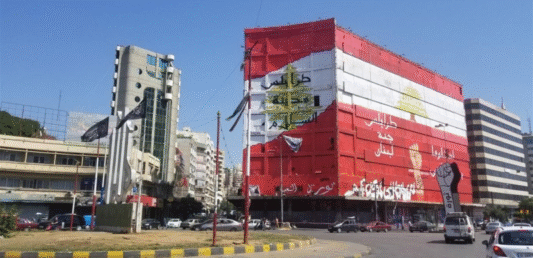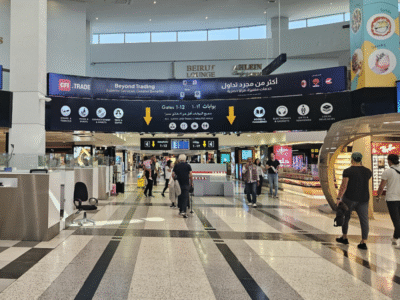Health Support for Syrian Refugees in Lebanon Stopped and the internal divide is heating up.

Health support for Syrian refugees in Lebanon Stop! And the internal divide is heating up.
In an unexpected move, the United Nations High Commissioner for Refugees (UNHCR) announced that health coverage for Syrian refugees in Lebanon will be discontinued starting next November.
The decision, which was officially communicated to the Lebanese Ministry of Health, sparked mixed reactions in political and social circles.
The Lebanese were divided between those in favor and those who saw it as a means of pressuring Syrians to return to their country.
and opponents who see it as a serious health and humanitarian threat that puts the burden back on the overstretched Lebanese state.
Background on the decision to subsidize health care for Syrian refugees and its reasons
The Lebanese Ministry of Health explained that the UNHCR justified this decision with a lack of donor funding, which Minister Rakan Nasreddine considered a dangerous sign.
He emphasized that health care for Syrians cannot stop without finding an effective alternative.
He called on the UNHCR to work on new mechanisms to ensure the continuation of this essential service.
“The only solution is to secure sustainable international funding until the safe return of refugees to their country,” he said.
Lebanese Reactions: Support and Opposition
The UN decision has sparked mixed reactions within the Lebanese arena:
MP Bilal Abdullah: “The surprise is alarming”
MP Bilal Abdullah, head of the parliamentary health committee, expressed his concern over the sudden decision.
calling it a “humanitarian injustice” against more than one million Syrian refugees.
He explained that the health coverage, which covered about one million people, including the elderly, children, and the chronically ill, served as a humanitarian safety net.
He noted that this decision could lead to the spread of diseases among Syrians, as well as in neighboring Lebanese communities, complicating the national health landscape.
“It is true that the cessation of health coverage could be a pressure factor for Syrians to return to their homeland,” Abdullah said.
but it must be done as part of an integrated plan that includes transferring support with them to the Syrian interior.
This requires careful coordination between Lebanon, Syria and the international community.”
MP Saeed al-Asmar: “A decision in the right direction”
MP Said al-Asmar, a member of the Strong Republic bloc, welcomed the decision as a natural response to the Lebanese Forces party’s constant demands to stop foreign support that encourages Syrians to stay in Lebanon.
“Health coverage is a right for every human being, but Syrians should get it in their home country, not in a country suffering from the worst economic and social crisis in its history,” Asmar said.
Al-Asmar accused the UNHCR of violating Lebanese sovereignty by providing aid to refugees without coordination with the state, pointing out that the presence of Syrians has become illegal now that the reasons for asylum are no longer valid.
Dangerous humanitarian dimensions after health support for Syrian refugees Toward an impending health crisis?
Despite differing political views, the humanitarian impact of this decision cannot be ignored. Most Syrian refugees in Lebanon live below the poverty line and are completely dependent on humanitarian aid in various sectors.
especially health care. According to international reports, the cost of treatment in private and public Lebanese hospitals has become very high, even for Lebanese citizens themselves, let alone refugees.
If no alternative or plan B is found, hundreds of thousands of Syrians will find themselves facing a slow death.
or outbreaks of chronic and infectious diseases with no access to treatment or hospitalization.
Lebanon’s fears, a double burden on an overstretched health sector
Lebanon’s health sector is suffering from a shortage of medicines and equipment, the emigration of medical staff, and the enormous pressure on public hospitals. The cessation of UNHCR support will force refugees to resort to these hospitals for treatment without financial coverage, which could further paralyze the health system and increase community tensions in areas where refugees are deployed.
Some Lebanese municipalities have also expressed concern about the potential spread of infectious diseases as a result of the lack of medical care, especially in refugee camps where hygiene and sterilization conditions have deteriorated significantly.
Does the decision to subsidize health care for Syrian refugees pave the way for the return of refugees?
Some believe that the cessation of aid, including health aid, is part of an international strategy to return refugees to Syria, especially after the relative calm in some areas. But voluntary return remains complicated, given the lack of adequate security, economic and social guarantees inside Syria.
Experts believe that the return must take place within the framework of a comprehensive understanding between Lebanon, Syria and the international community, and that the returnees must be provided with basic services inside Syria, including health, education and housing, so that the return does not turn into a new humanitarian tragedy.
What is needed now is an emergency plan and an international strategy
Between UNHCR’s decision and the reality on the ground, a major challenge emerges for the Lebanese government and the international community: How can health care be provided for one million refugees without sufficient resources? Will donor countries move quickly to fill the gap? Or is the decision just the beginning of a series of international withdrawals from the Syrian refugee file in Lebanon?
Lebanese officials emphasize that what is needed is a contingency plan starting between now and November, including:
- Boosting funding for the Lebanese health sector
- Coordination with donors to make up the gap
- Launching negotiations with Damascus on an organized return mechanism
- Organizing Syrian workers through official work permits
Between human suffering and political division
The decision to end health coverage for Syrian refugees in Lebanon is a radical shift in the way the refugee file is handled, but it carries with it huge humanitarian challenges. While some support it and others reject it, human health remains paramount, and the priority should be to ensure the right to treatment for everyone who needs it, regardless of their nationality.
Will the international community move quickly before November, or are we facing a new humanitarian and health crisis in an already overstretched Lebanon?
The post Health support for Syrian refugees in Lebanon is stalled. And the internal divide is heating up. appeared first on 961 Today Lebanon Today.















